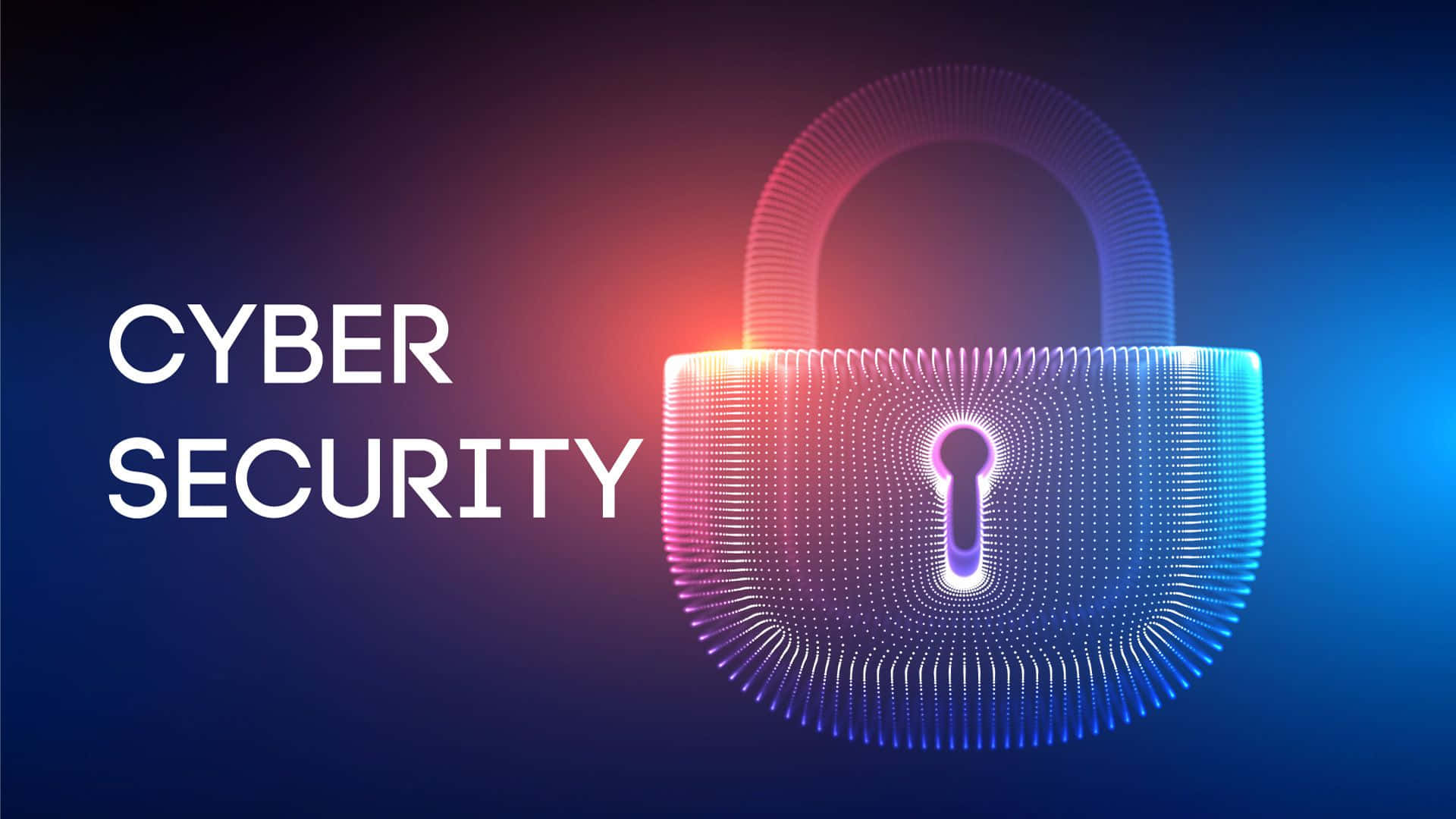Welcome to the Magical Cyber World
In this magical cyber world, we’re becoming more and more connected to the internet. We shop online, work online, store memories online and even control our thermostats and coffee makers online. It’s convenient almost magical but it comes with one huge catch we’re more exposed than ever. Cybersecurity is what we
From online banking to cloud storage, social media to smart homes, we rely on digital systems to work, communicate, shop, and stay informed. But with this convenience comes a hidden danger. Cyber threats that can disrupt systems, steal identities, damage reputations, and compromise national security.
Every time we sign in, swipe, or share, we’re leaving digital breadcrumbs. And guess what? Someone’s always out there trying to snatch them up. That’s where cybersecurity comes in not just for tech nerds or big corporations but for You, Me, Your parents, Your favorite one everyone anyone. Because if you’re online even just a little you’re part of the digital universe. Cybersecurity is more important than ever as we become increasingly connected online. And that means you need to know how to protect yourself in it.
So let’s dive into what cybersecurity actually is? why it matters and how we can all do a better job of protecting our digital lives.
Why Cybersecurity Isn’t Just a “Tech Thing” Anymore
Let’s get real for a second. Most of us have heard the word cybersecurity and thought that’s for the IT department.” But not anymore. Now, it’s personal.
-
Got a smartphone? You’re carrying your digital identity in your pocket.
-
Use online banking? Your money lives in the cloud.
-
Post pictures on social media? That’s your life, out there for the world (and sometimes bad guys) to see.
Cybersecurity isn’t a luxury or an “extra step.” It’s a necessity. Just like locking your front door or looking both ways before crossing the street. For a long time, cybersecurity sounded like something only tech professionals needed to worry about. It felt like it lived in server rooms, data centers or corporate IT departments far removed from our everyday lives.
But that’s no longer true. Cybersecurity is deeply personal. It’s not just about protecting government secrets or bank vaults. It’s about protecting your photos, your messages, your passwords, your money and in many ways most probably your peace of mind.
If you use the internet for anything at all whether it’s online banking, ordering food, chatting with friends, or running a small business you’re in the mix. And being in the mix means being a potential target.
Here’s the thing: cyber-criminals don’t discriminate. They don’t care if you’re a high-powered CEO or a college student. All they need is one click, one reused password or one moment of carelessness. And that’s where they strike.
Understanding the Threats: What Are We Really Up Against?
Cyber threats aren’t always loud or obvious. Sometimes they come quietly disguised as helpful emails, friendly messages, or pop ups that say, “You’ve won!” Let’s break down the kinds of threats that are out there because understanding the risks is the first step in protecting yourself.
Here are some of the most common and dangerous threats you might face:
Phishing: The Art of Deception
Phishing is one of the oldest tricks in the cyber-criminal playbook and it still works. You’ll get an email that looks like it’s from your bank, your delivery company or even your boss. But it’s a fake. Click the link and it’ll lead you to a phony website that steals your login info. Sometimes it’s even more subtle like a fake invoice or a job offer that seems too good to be true. And once they have your credentials? They can do some serious damage.
Malware: The Invisible Intruder
Malware is short for “malicious software.” It’s like a digital parasite. It sneaks into your device through shady downloads, infected websites or bogus attachments. Some malware is designed to spy on you. Some tries to steal data. Others just mess things up for the sake of chaos. The worst part? You might not even know it’s there until it’s too late.
Ransomware: Holding Your Files Hostage
This one hits hard. Ransomware locks up your files—photos, documents, everything and demands payment (often in cryptocurrency) to unlock them. Even if you pay, there’s no guarantee you’ll get your data back. Businesses are specially vulnerable. One wrong click by an employee can paralyze an entire company.
Identity Theft: When Someone Becomes You
If someone gets enough of your personal data like your name, address, date of birth and Social Security number they can open credit cards, apply for loans and even file taxes in your name. It’s more common than you’d think and the aftermath can take years to fix.
Everyday Habits That Protect You
Well, guess the good news? You don’t have to be a cybersecurity expert to protect yourself. You just need a few good habits.
1. Use Strong, Unique Passwords
No more “123456” or “password.” Use passwords that are long and complex. Better yet, use a password manager to keep track of them for you.
2. Turn on Two-Factor Authentication (2FA)
This adds a second layer of security to your logins like a code sent to your phone. Even if someone steals your password, they still can’t get in without that second step.
3. Keep Everything Updated
Software updates aren’t just for new features they often fix security flaws. Update your phone, computer, apps, and even your router regularly.
4. Don’t Click on Suspicious Stuff
If something looks sketchy an email, a pop up, a link then don’t click it. If you’re unsure, go to the website directly or ask someone you trust.
5. Back Up Your Data
Use cloud storage or an external hard drive. That way if something goes wrong, you won’t lose everything.
6. Use Antivirus Software
This adds an extra layer of defense. Many modern antivirus tools also help detect phishing and block harmful websites.
Cybersecurity at Home: Protecting Your Family
With kids spending more time online school, games, social media it’s crucial to make cyber-security a family conversation. It’s not about fear, it’s about awareness.
-
Talk to your kids about what’s safe and what’s not.
-
Use parental controls to manage content and screen time.
-
Encourage them to ask questions and tell you if something feels wrong.
-
Stay involved. Know the apps they use. Follow them online. Make digital safety part of normal life.
Read more: Bangladeshi Students joining Global Strike for Gaza on April 7th
Cybersecurity: A Pillar of Economic Stability and Digital Growth
Cybersecurity has become a primary economic driver in today’s digital economy. With governments and additional businesses venturing into digital infrastructure, economic losses incurred due to cyber attacks, previously low, are today manifold. Huge financial loss, loss of data, disruption of operations, ultimately affecting the economy, are the potential damages caused by cyber attacks. By adopting strong cybersecurity methods, companies can avoid such losses, ensure business continuity, and ensure customer trust, thus making cybersecurity a technical necessity, but also economic in nature.
Cybersecurity also reaches into financial services, e-commerce websites, and tech-based firms in which confidential data are processed. Securing this information avoids fraud, identity theft, and system crashes, with a ripple effect impact for consumer trust and global markets. Governments are also investing more budget in cyber-defense, ensuring economic stability in countries through safeguarding key infrastructures in the likes of energy, health, and transport.
Aside from protection, cybersecurity has also opened up a new economic development and employment growth channel. There is growing demand for digital security, there is also growing demand for qualified experts in positions involving ethical hacking, cybersecurity analysis, and incident response. The industry is abuzz with security solutions, penetration testing services, and consulting startups, generating employment and driving innovation, not just enhancing cyber resilience globally but also driving economic development through a thriving digital economy.
The Business of Cyber-security: A Fast-Growing Industry
Cyber-security isn’t just about protection it’s big business. And it is booming.
In 2023 the global cyber-security market was valued at $172.24 billion, and it’s on track to grow to $562.72 billion by 2032. That’s a compound annual growth rate of more than 14%, and it shows no signs of slowing down.
North America dominated the space in 2023, accounting for nearly 44% of the global market. The U.S. alone is projected to hit $166.73 billion by 2032, thanks in large part to the growth of online commerce and the sheer amount of digital infrastructure in play.
Industries like banking, healthcare, insurance, and manufacturing are ramping up their investments. These are sectors where a breach doesn’t just hurt the bottom line. It can cost lives, data, and public trust.
Companies like IBM, Microsoft, Palo Alto Networks, and Broadcom are leading the charge, offering everything from AI-driven threat detection to advanced cloud protection.
And business models are:
-
Product-based: Antivirus software, firewalls, VPN’s usually sold as licenses or subscriptions.
-
Service-based: Managed security services, consulting, employee training, and risk assessments.
-
Cloud security: Protecting cloud-based infrastructure and apps as more businesses go remote.
-
Cyber insurance: A growing niche that helps businesses recover financially from data breaches or ransomware attacks.
-
Freemium models: Basic tools for free, advanced features at a cost. This model helps gain trust while scaling quickly.
Simply put cyber-security isn’t a side gig anymore it’s a core part of the global economy.
Reference: Fortune Business Insights
Cybersecurity for Youth: Learning, Earning, and Building a Digital Future
Your Future in Cybersecurity Starts Now. Just like we lock our doors or wear seatbelts being secure online should become a habit. Cybersecurity isn’t just about preventing bad things it is about building a smarter, safer digital life.
If you’re a student, freelancer or someone just curious about tech this is your moment. Learn the basics. Watch the right channels. Practice your skills. Ask questions. Break (ethical) things and learn from them.
Because whether you’re protecting a small blog, a company’s database, or your own digital identity, cybersecurity is no longer optional it’s part of modern life.
And the best part? It’s a field where you can make a difference and make money. That’s a rare combination. So start small, stay consistent, and who knows you might just build the next big thing in cybersecurity.
How You Can Start a Cybersecurity Career (for Free)
You don’t need to spend thousands of dollars to get started. YouTube is packed with high-quality cybersecurity education that’s accessible and beginner-friendly.
Here are five great channels that not only teach the fundamentals but also offer insights on how to build a career or business in cybersecurity:
1. John Hammond
YouTube: https://www.youtube.com/c/JohnHammond010
John shares real-world hacking scenarios, tools, and tutorials. He’s active in the cybersecurity community and offers great insights into ethical hacking and career development.
2. The Cyber Mentor (Heath Adams)
YouTube: https://www.youtube.com/c/TheCyberMentor
Heath runs TCM Security and gives away full hacking courses, practical training, and career tips. He also shares his personal journey of building a successful cybersecurity company.
3. NetworkChuck
YouTube: https://www.youtube.com/c/NetworkChuck
This channel makes technical topics fun and accessible. Chuck covers cybersecurity, networking, cloud, and certifications in a way that’s easy to understand and actionable.
4. HackerSploit
YouTube: https://www.youtube.com/c/HackerSploit
Focused on ethical hacking, penetration testing, and offensive security, this channel is a great resource for deepening your technical skills.
5. David Bombal
YouTube: https://www.youtube.com/c/DavidBombal
David offers tutorials, interviews with experts, and insights on how to build a tech career. His content includes networking, cybersecurity, and certifications.
Turning Skills Into Income: Paths to Profit in Cybersecurity
Once you gain some knowledge and hands-on practice, you can turn your cybersecurity skills into a reliable source of income. Here are a few paths young people are already taking:
1. Freelance Cybersecurity Services
Offer services like vulnerability testing, website security audits, or incident response to businesses via freelance platforms like Up work, Fivers or Freelancer.
2. Bug Bounty Programs
Platforms like HackerOne and Bugcrowd pay security researchers for identifying and responsibly reporting bugs. Some ethical hackers earn six figures or more from bounties.
3. Sell Courses and E-Book
If you’re confident in your expertise, you can package your knowledge into online courses, ebooks, or start a newsletter building both income and authority.
4. Start a Cybersecurity Consultancy or Agency
With enough experience, you can register your own business and offer cybersecurity services to small and mid-sized companies who lack in-house IT security staff.
5. Become a Content Creator
Just like the YouTubers mentioned above, you can share your learning journey, tutorials, and tips online. As your audience grows, so do your monetization opportunities through ads, sponsors or affiliate links.
Read more: Why Citycell couldn’t survive the telecom race
Looking Ahead: What is Next in Cybersecurity?
Technology isn’t slowing down and neither are the threats. As we continue to build smarter devices and more connected systems, cybercriminals are getting smarter too. So, what’s coming next?
-
AI-Powered Security: Think of it like digital instincts systems that learn how to recognize suspicious activity and act faster than we ever could.
-
Zero Trust Architecture: It’s exactly what it sounds like. No device, no user is trusted by default not even inside your company network. Everyone has to prove they belong.
-
Biometric Authentication: Face scans, fingerprints, maybe even retina scans it is not science fiction anymore. It’s the new standard for logging in securely.
-
Quantum Computing: This could totally reshape the way we encrypt and protect data. It’s powerful but it also means hackers could get more powerful too.
-
Stricter Global Rules: Countries and industries are finally tightening the rules. Companies will be held to higher standards, and that means better protection for all of us.
It is a fast moving space and there is no doubt about it. But it’s also one of the most important ones for our businesses, our privacy, and our peace of mind.
Conclusion
We don’t leave our doors unlocked at night. We buckle up when we get in the car. We teach our kids not to talk to strangers. These are everyday safety habits and in today’s world, cybersecurity belongs right alongside them.
But this isn’t about being paranoid. It’s about being smart. Living online is part of modern life, and with a few small steps, we can keep ourselves much safer in it.
Start simple:
-
Use strong, unique passwords.
-
Keep your software and devices updated.
-
Be cautious with emails and links.
-
If you’re a parent, talk to your kids early about digital safety.
-
If you’re a business owner, train your team and invest in protection.
The internet is an amazing tool it helps us connect, learn, grow, and share. But just like any tool, it needs to be used wisely. And in a world that’s only getting more digital, taking care of your cybersecurity is one of the smartest things you can do for yourself, your family, and your future.
Cybersecurity isn’t just tech it is trust. It’s protection is peace of mind.
Share via:


















